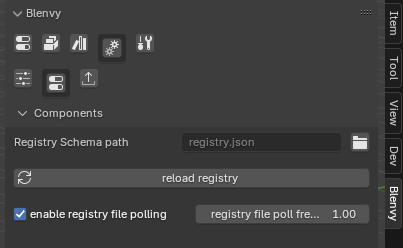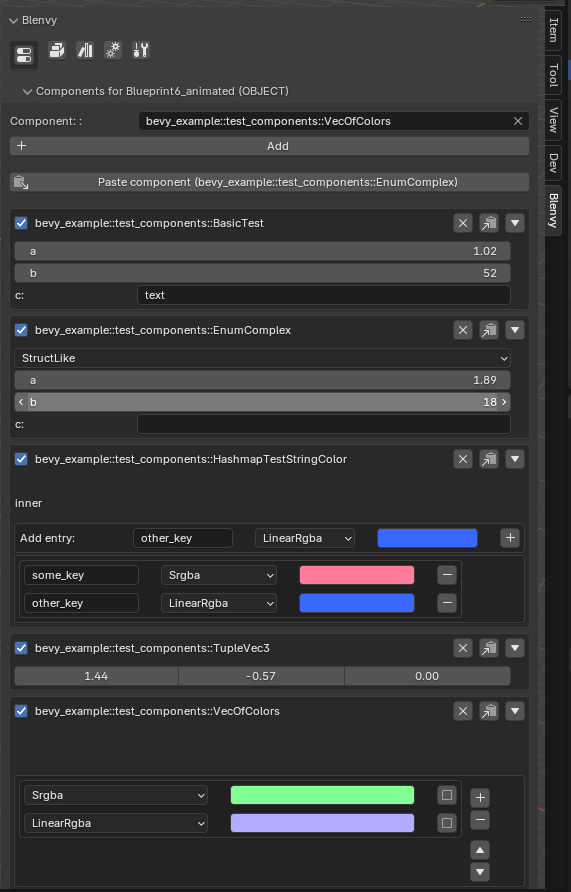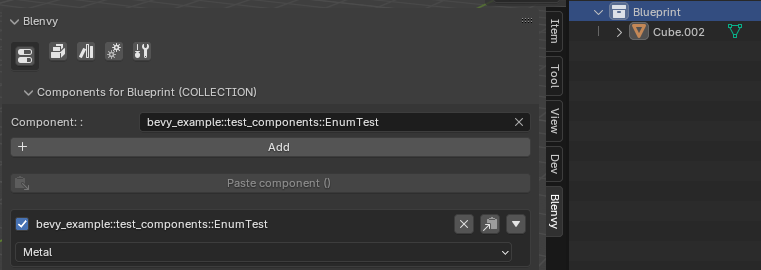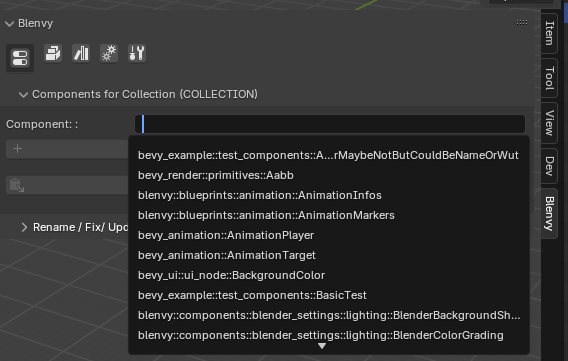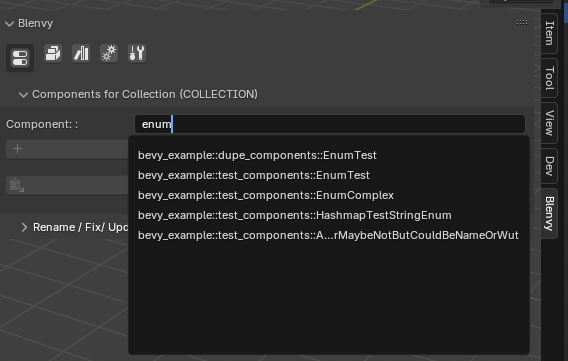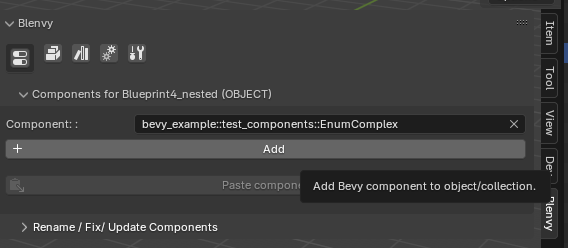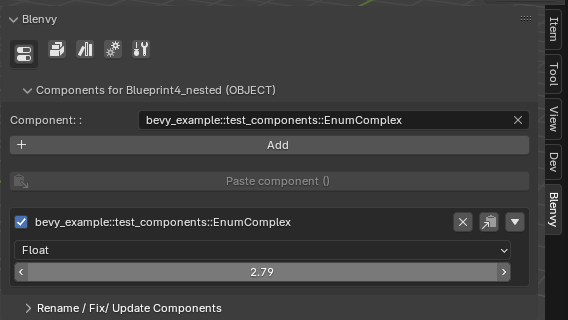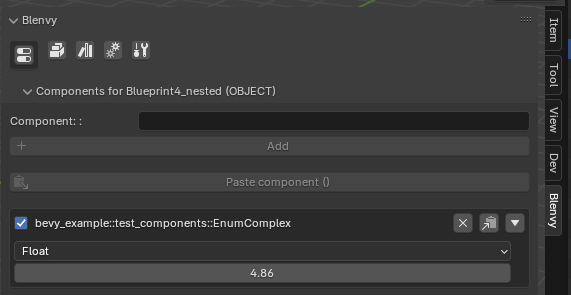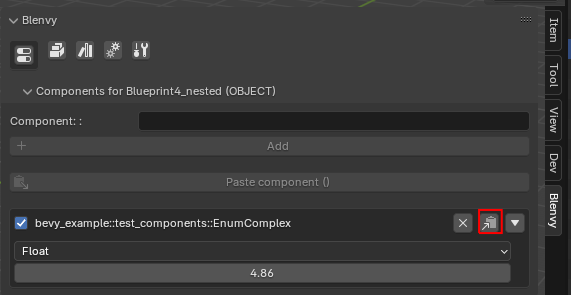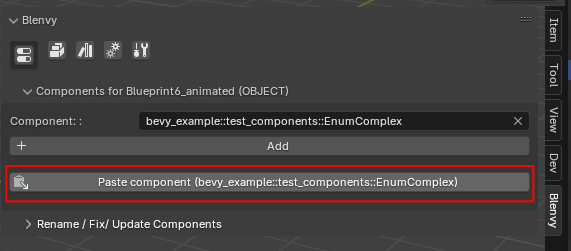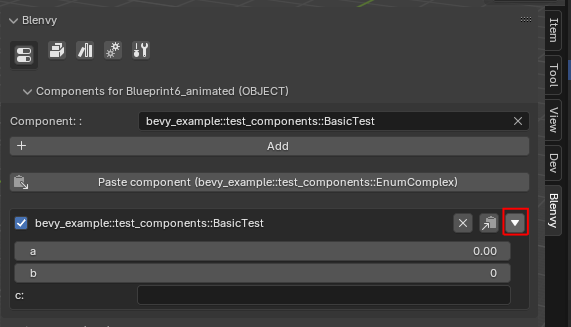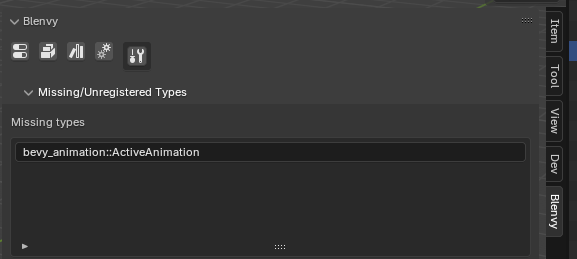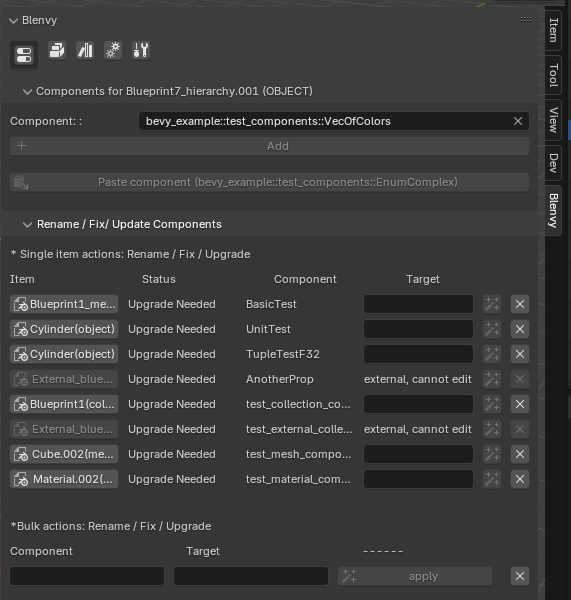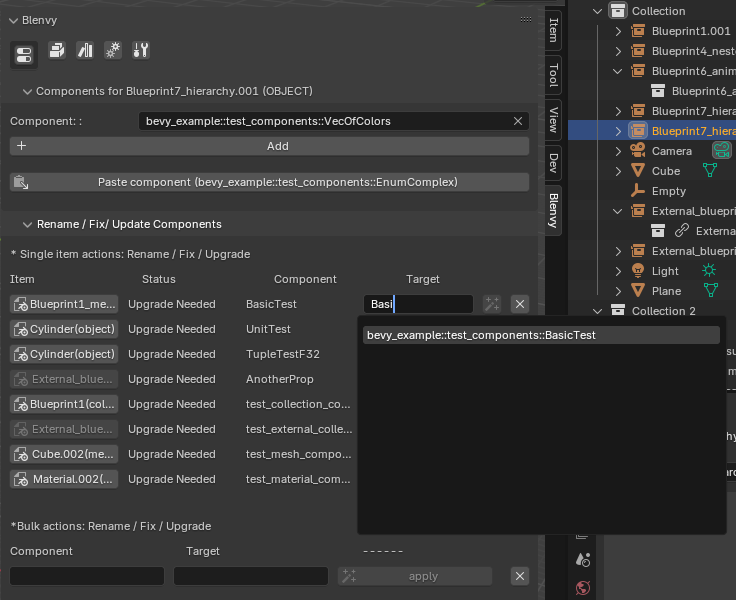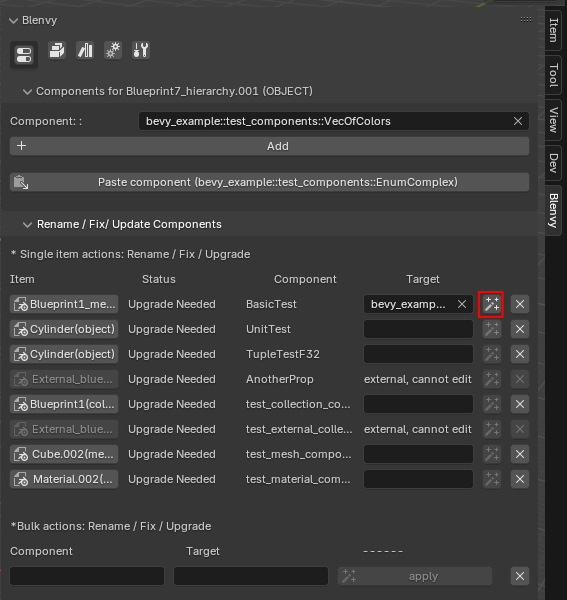6.9 KiB
Components
Configuration
The second tab in the settings contains the component settings:
you normally do not need to do anything, as the defaults are already pre-set to match those on the Bevy side for the location of the
registry.jsonfile, unless you want to store it somewhere other thanassets/registry.json
registry file (default: assets/registry.json)
- click on the button to select your registry.json file (in the "configuration" panel)
reload registry
- click on the button to force refresh the list of components from the registry.json file
registry file polling
- by default, the add-on will check for changes in your registry file every second, and refresh the UI accordingly
- you can set the polling frequency or turn it off if you do not want auto-refresh
Supported components
- normally (minus any bugs, please report those!) all components using registered types should be useable and editable
- this includes (non exhaustive list):
- enums (even complex ones !)
- complex structs, with various types of fields (including nested ones)
- lists/ vecs
- hashmaps
- etc !
Supported items for components
you can add components to
- objects
- collections/ blueprints
- meshes
- materials
These will be all applied correctly to the resulting entities on the Bevy side
Blueprints & components:
- to add components to a blueprint, select your blueprint's collection and add the desired component
- when you select a blueprint/collection instance you can view both the blueprint level components (for all instances) ...
- and the components specific to that instance
if the instance and blueprint have the same component, the component value of the instance takes precedence & overwrites that of the blueprint ! In the case above, the component will have the value
Metalfor that instance.
adding components
-
to add a component, select any object, collection, mesh or material and then select the component from the components list: (the full type information will be displayed as tooltip)
-
click on the dropdown to get the full list of available components
- the list of components is searchable !
- add a component by clicking on the "add component" button once you have selected your desired component
it will appear in the component list for that object
editing components
- to edit a component's value just use the UI:
copy & pasting
-
you can also copy & paste components between objects/collections/meshes/materials
-
click on the "copy component button" of the component you want to copy
- then select the item you want to copy the component (& its value) to, and click on the paste button.
It will add the component to the select item
if the target item already has the same component, its values will be overwritten
Toggling component details
- for large/ complex components you can toggle the details of that component:
Error handling & unregistered types
-
if you have a component made up of unregistered structs/enums etc, you will get visual feedback & the component will be deactivated
see here for ways to convert invalid / unregistered components to other types.
-
if you are encountering this type of view: don't panic your component data is not gone ! It just means you need to reload the registry data by clicking on the relevant button
-
non registered types can be viewed in this panel : (can be practical to see if you have any missing registrations too!)
Renaming/upgrading/fixing components
Single item actions
this panel shows you the list of components that either
- are not in the registry anymore
- are invalid (there is some error in the component that makes it unavailable in Blenvy)
- need upgrading (ie they where stored as a custom property instead of Blenvy metadata for example)
The last case is also for components that where created before Blenvy , using the legacy bevy_components Blender add-on
The objects & components in this panel are not related to your current selection
- select the target component for a given source item/component:
- click on the apply button
- you will get a notification depending on how the process went, and if all went well, the entry will be deleted from the list of items that need fixing/upgrades
Bulk actions:
- you can rename/convert/upgrade or delete a given type of component to another for ALL of your objects, collections, meshes and materials in one go by choosing an original and a target component & clicking on apply or delete
Known issues & limitations:
- Range data (ie
Range<f32>etc) are not handled at this time - Entity structs are always set to 0 (setting entity values on the Blender side at this time does not make much sense anyway)
Technical details
- Blenvy's component system uses the data from the exported type registry in the registry.json file to add metadata to objects/collection/meshes/etc containing information about what components it uses + some extra information
- uses Blender's PropertyGroups to generate custom UIs & connects those groups with the custom properties so that no matter the complexity of your Bevy components you get a nicely packed custom_property
- in order to avoid name clashes, it uses the full paths of components & stores the data in the
bevy_componentscustom property - changing the values of a component in the UI will automatically update the value of the underlying entry in the
bevy_componentscustom property - different item types in Blender result in different types of GltfExtra components in Bevy (this all happens under the hood):
- objects : GltfExtras
- collections/ blueprints: SceneGltfExtras (as the Blueprints get exported as seperate scenes)
- meshes: MeshGltfExtras
- materials: MaterialGltfExtras
